Is 'Logan' Embarrassed To Be A Comic Book Movie?
The release of Logan is not just a current box-office success; it's undoubtedly an important chapter in comic book movie history.
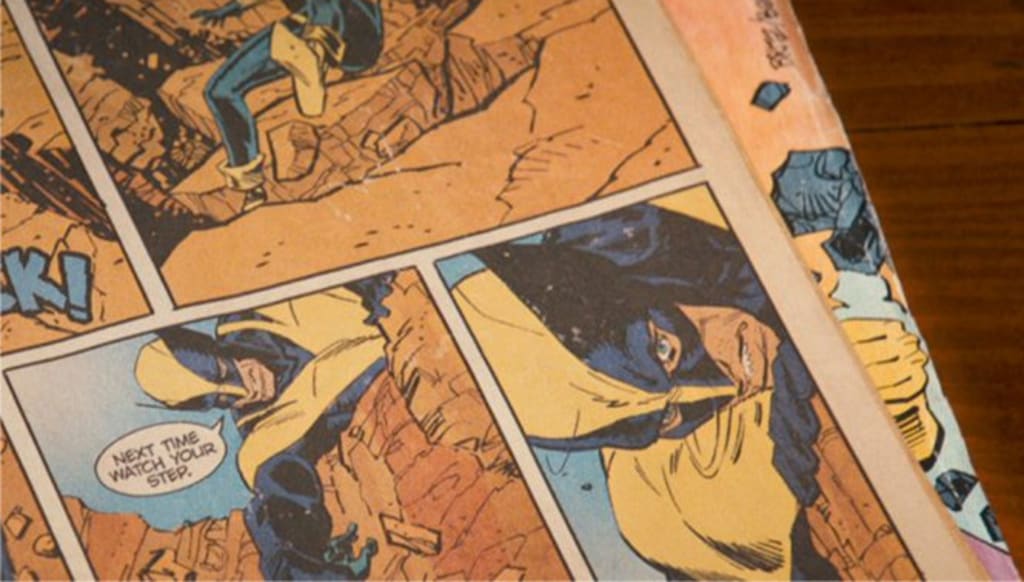
*Warning! This Article Contains Spoilers For Logan*
The release of Logan is not just a current box-office success; it's undoubtedly an important chapter in comic book movie history. Logan’s unique position as a western, a touching fugitive narrative, a brutal R-rated action movie and a comic book film has made it a huge talking point for cinema buffs and casual fans alike. But do the filmmakers actually classify it as a comic book movie at all? Certainly, script writer Scott Frank takes issue with Logan being a superhero film:
“...[in Logan] we’re never talking about being a superhero. We’re never talking about any of that stuff. And we’ll tell an adult story about growing old, about paying for your sins and what it really means.”
This has caused fans and critics to question the movie's stance on its comic book origins. Indeed, many articles talk about how Logan is “transcending” or “maturing” from the rest of the genre, and Deadline’s review of the film is entitled “The Marvel Comic Book Movie For People Who Hate Marvel Comic Book Movies.” So, are the makers of Logan, as well as the movie itself, embarrassed by the graphic novels which spawned it?
“We Should Not Make Films for the Dumbest of Us”
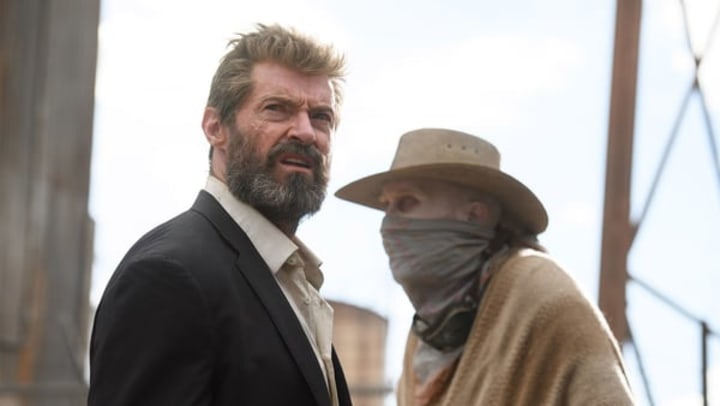
Caliban and Logan - confused [Credit: 20th Century Fox]
Both before and after Logan’s release, director James Mangold has been pretty outspoken about his decision not to give Wolverine his iconic costume, as well as the concept of shared universes. But he doesn’t only take umbrage with the interconnected genre; his ire is also directed at the state of cinema itself. Sitting down with Empire Magazine, Mangold railed against the methods of modern movie making, and he didn’t mince words:
“In most modern films, we have... killed the act of allegory or ... even the space to process the poetic meaning of the imagery... we don’t ... sit on [a] scene without commentary for very long. A wide shot hardly ever exists anymore without [f*cking] type underneath it telling you where you are... We just can’t let an image sit for fear that one of our ADD audience members cannot possibly keep from looking at their phone during that shot.”
Let’s face it, lots of movies are guilty of putting those kinds of captions onscreen. Captain America: Civil War featured numerous shots of cities with their names superimposed over them, and Batman V Superman: Dawn of Justice explained that the scene where Kryptonite is found occurred “Somewhere in the Indian Ocean.”
On the other hand, Mangold’s plea for movies to “breathe” is an interesting one. Editing certainly seems to be a problem with Hollywood pictures right now. As comic book fans know, the over-zealousness of cutting and editing has badly affected several recent high-profile releases, which have mangled the intended meaning.
Mangold's "space for poetic meaning" is also a compelling thought. Writers and filmmakers have long prized the power of allusion; what isn’t directly said or shown is often more potent and compelling because we project our own ideas into the narrative and fill in the gaps. To use an example from Logan itself, the “Westchester Incident” seems more dark and horrifying because we get to see only the lesser effects of Professor X’s (#PatrickStewart) seizures. Our imagination fills in the gaps, and can only wonder at the horror and sadness of his darkest moment.

Professor X suffers another psychic seizure [Credit: 20th Century Fox]
However, this hasn’t stopped many fans complaining that they should have seen it onscreen, which caused Mangold to reiterate that spoon-feeding the audience these kinds of titbits is not the way that films should be produced:
“We should not make films for the dumbest of us.”
Mangold’s words are certainly brusque, but he is by no means the first to express caution about comic book and superhero blockbusters.
Comic Book Movie Backlash
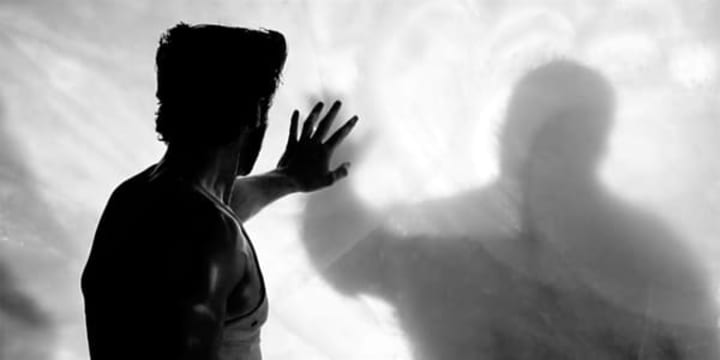
[Credit: 20th Century Fox]
Another facet of comic book movies (and blockbusters in general) Mangold takes umbrage with is the lack of political perspective & commentary:
“...There is some level where you have to take a moment to go, 'What am I saying...what am I saying about life? [Am] I actually helping people stay anaesthetized and ignorant? Am I contributing to the problem?”
He’s definitely not alone in this holding this viewpoint. The pervading hatred of superhero movies as escapist nonsense is well documented, with many critics lambasting them as immature and simplistic. Birdman’s Alejandro González Iñárritu even referred to the prevalence of superhero films as “cultural genocide.” None of this is very new though. For as long as there has been culture, there’s been a discussion about what pieces are better and more enlightening than others.
Mangold might not be the first to criticize superhero blockbusters and their ilk, but he is one of the first to make such comments whilst he's working inside the medium. Does this mean the makers of Logan believe that the popular messages of comic books are beneath them? Not necessarily. As ever, the answer is not as cleanly cut as the slices made by Wolverine’s adamantium claws.
Is Logan Embarrassed to be a Comic Book Movie?
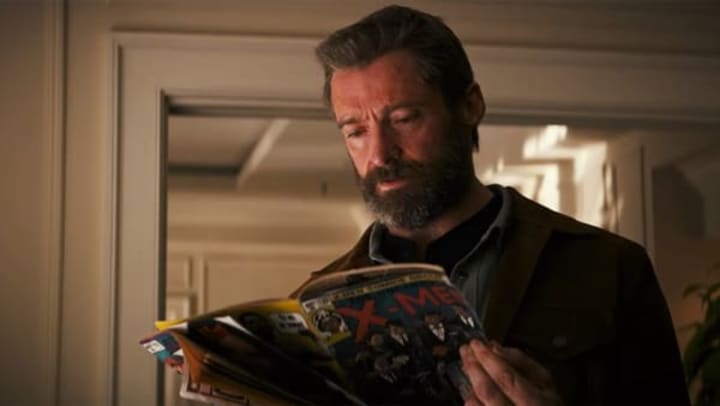
Logan: unimpressed by the X-Men comics [Credit: 20th Century Fox]
It’s not hard to see why lots of people believe that Logan, which is a slower, character-focused piece, is ashamed to be associated with comic books. The movie eschews many of the common genre tropes; there’s little action to be found, and when it does appear, it is brutal and un-flashy. When Logan discovers that Laura (Dafne Keen) has some original issues of #XMen comics in her possession, he cuttingly dismisses them in fine, crotchety fashion as “ice cream for bed-wetters.”
So far it’s not looking positive, but Logan’s overall attitude to the comics is far more complex, since they serve as a backbone for the whole of the movie's story. Indeed, their very existence galvanizes the powerful Transigen escapees into action, and serve as a comfort and inspiration to each of them.
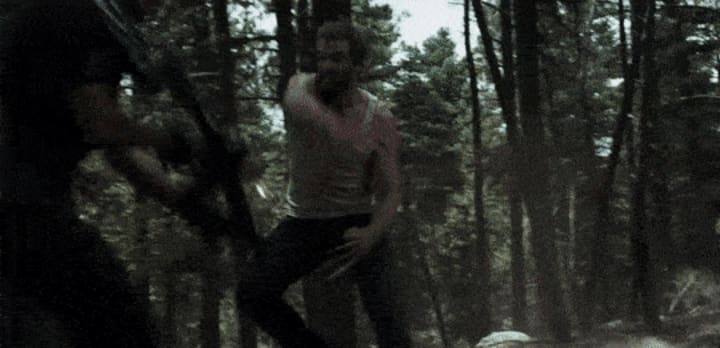
The Wolverines in action [Credit: 20th Century Fox]
After reading about "Eden", the kids strive to make their own version of it a reality. They gaze in awe at Logan as he rushes into battle; and a young mutant hugs a Wolverine figure for comfort at the film’s conclusion. The presence of these books are very much felt by these characters, and none more so than Laura. As Professor X implores to Logan, the existence of these paper-bound legends are “real to her.”
Naturally, this doesn’t sit well with our nihilistic protagonist. Struggling with his tragic past, his berserker rage and the legacy of his heroic days, Logan clearly finds it impossible to live up to everyone’s idealized expectations of him. He even assures Laura that:
“I'm not whatever it is you think I am.”
However, even after all of this, he still accompanies Laura and even sacrifices himself for her in a way that his idealized comic book counterpart would.
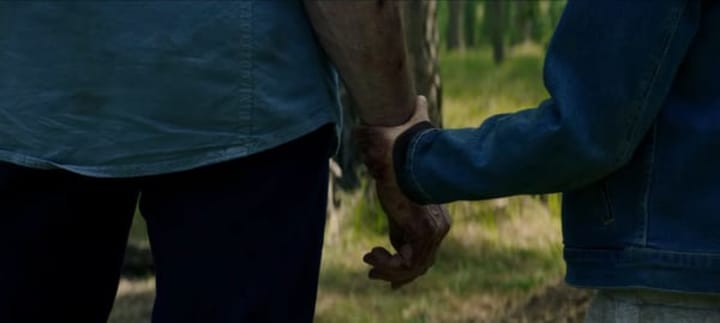
[Credit: 20th Century Fox]
Logan’s hope and love are rekindled by Laura’s faith in him, and he even uses a very comic book-y drug to assume that role, even if it’s for a short and unsustainable while. In this way, we can read that Logan is not the sanitized comic book version of himself because it is unsustainable, but neither is he the brutal and mindless X-24. He is a multifaceted hero – that’s what makes him a special character, and therefore this subtext is crucial to this conversation.
High Culture and Low Culture Clash But Co-Exist In 'Logan'
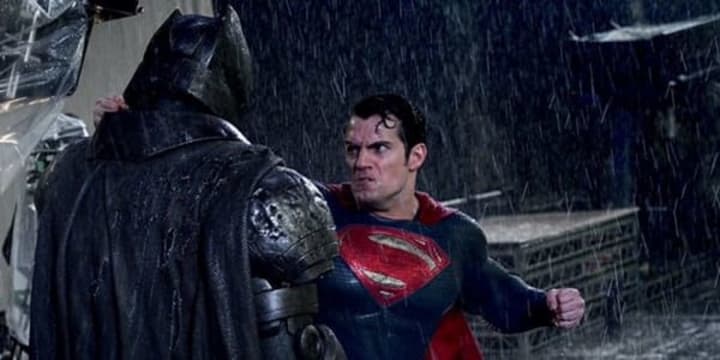
Are we being pummelled by too many Caped Crusaders? [Credit: Warner Bros.]
The comic book #Wolverine, as well as the real Logan himself, may be quite different, but by the end of the film Laura still survives not just due to her healing factor, but because of both of them.
Mangold has repeatedly stressed that in making Logan, the comics were useful up to a point. Though he may yearn for more substantial styles and systems of movie-making, Logan actually serves as Mangold's metatextual commentary that both high and low cultures can coexist.
For example, like them or loathe them, it’s debatable as to whether or not the #JohnWick action series makes any meaningful comments on society, but the films are still beloved because of their well-crafted escapism. And, just because the series chooses not to, it doesn’t mean that all of popular entertainment doesn't. Even other escapist blockbusters of modern day such as #Zootopia and Doctor Strange are able to subtly convey headier ideas than you’d have initially expected.
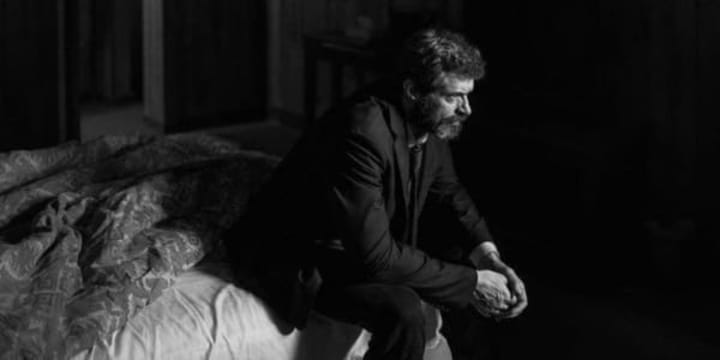
A thoughtful Logan [Credit: 20th Century Fox]
And if that doesn’t tickle your fancy, there are more thought-provoking films out there to find. As The Revenant, Ex-Machina and Moonlight show, popular entertainment doesn't eradicate more highbrow forms of culture.
Logan itself personifies this. One the one hand it is an existential drama, quoting Shane and plumbing the depths of the Wolverine’s soul, but on the other its features fights with robot-handed villains, magic serums and evil clones. With its cliché plot devices carried by compelling performances, its superhero trappings framed by beautiful cinematography, Logan shows us both that both high & low culture are equally valid, and can co-exist without cancelling the other out absolutely.
(Sources: Empire, Radio Times & Recode)
About the Creator
Max Farrow
A fanatical film-watcher, hill-walker, aspiring author, freelance writer and biscuit connoisseur.
These articles first appeared on Movie Pilot between Jan 2016 and Dec 2017. Follow me on Twitter @Farrow91






Comments
There are no comments for this story
Be the first to respond and start the conversation.